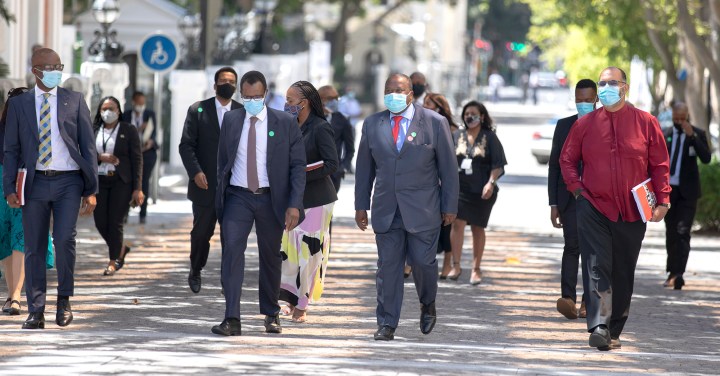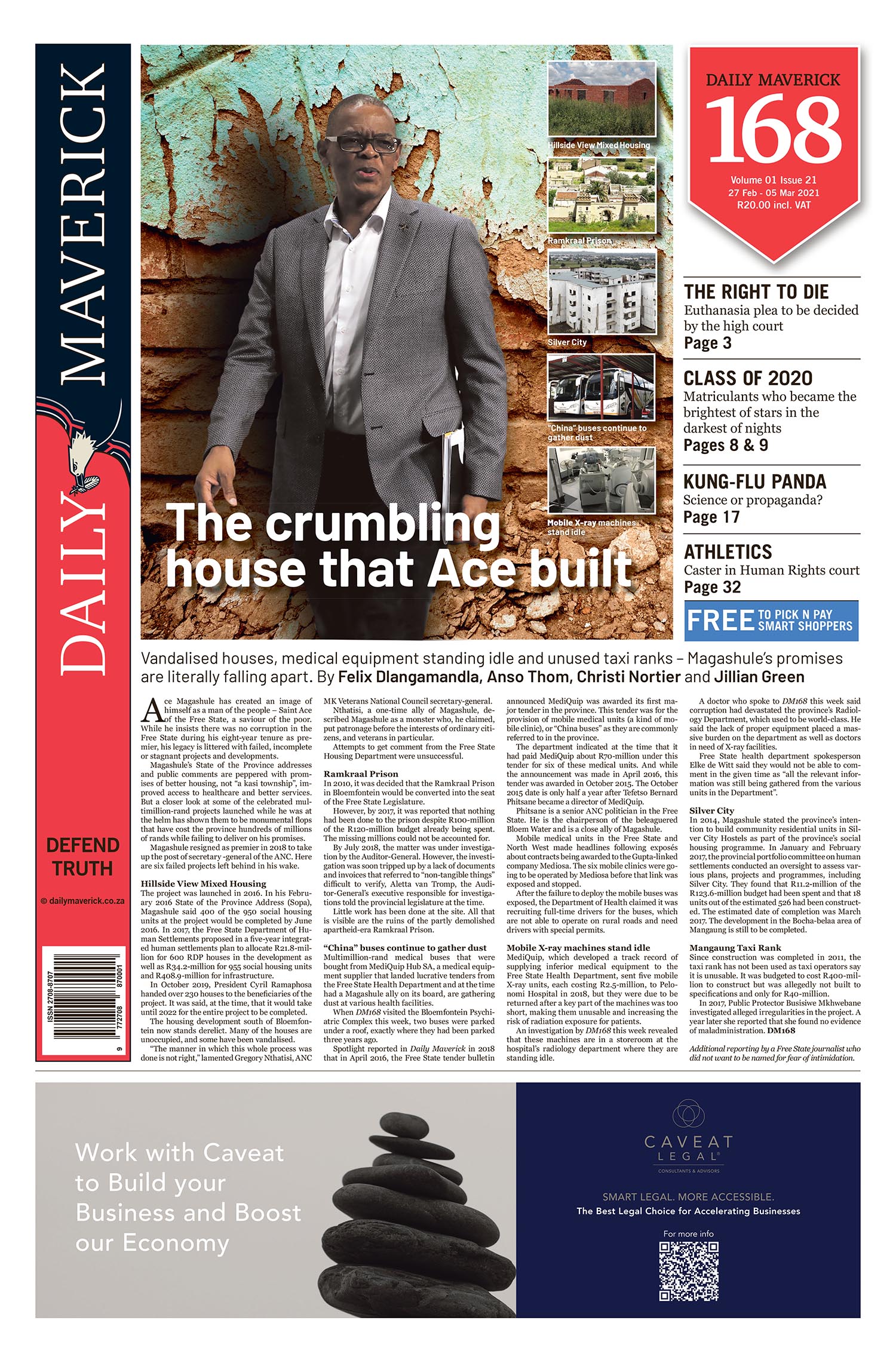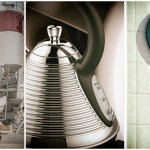DM168 Budget 2021
Tito Mboweni’s fine line divides ANC and its Cosatu allies

The Budget is a political balancing act whose final scenes have not yet been written.
First published in the Daily Maverick 168 weekly newspaper.
Finance Minister Tito Mboweni should be well chuffed with himself. After being slapped down by his ANC Cabinet colleagues on permanently grounding SAA, and some other attempts to nix vanity spending, he got his way in the 2021 Budget.
It’s no longer about closing the mouth of the hippo, or nurturing the aloe through a drought of revenue as it was over the past two years. In 2021, it’s plain fiscal control to reign in expenditure so South Africa’s debt can drop from its unsustainable levels.
“[G]etting our fiscal house in order is the biggest contribution we can make to support our Economic Reconstruction and Recovery Plan. Continuing on the path of fiscal consolidation during the economic fallout was a difficult decision. However, on this, we are resolute,” said Mboweni in his Budget speech on Wednesday. “We remain adamant that fiscal prudence is the best way forward.”
Central are two political pickles – social grants that were increased by a well below inflation 1.6% for some 18 million South Africans, and an effective public sector wage freeze for SA’s 1.3 million civil servants.
Mboweni said “there’s no need to be apologetic” about what’s effectively a token increase of between R10 to R30 depending on the social grant. No social contract existed to say grants had to be increased by a certain amount every year, he told a post-Budget media briefing on Wednesday. What was allocated was what could be afforded.
In Thursday’s Budget briefing to MPs, Mboweni stuck to that line. “When people talk about austerity, I don’t know what people are talking about… if 56% of your budget is social services.” The R2.02-trillion Budget allocates R1.21-trillion to everything from basic education, health and housing to basic services provision.
Although the governing ANC for years claimed the extension of social grants – in both reach and value – as one of its successes, it seems to have acquiesced to these token grant increases.
This echoes the response to the 2018 Budget’s unprecedented increase in democratic South Africa of value-added tax (VAT) by one percentage point to 15%.
Not a word appeared on the R10 to R30 monthly social grant increases in the ANC parliamentary caucus’s 1,046-word reaction to Budget 2021. It follows the line set by ANC Treasurer-General Paul Mashatile of “a difficult balancing act” and, under the circumstances, “a good Budget”.
That signals Luthuli House has signed off on these token grant increases, as has all of Cabinet. That final executive sign-off came on Tuesday with only one item left to conclude between Mboweni, his National Treasury team and President Cyril Ramaphosa – the drop of the corporate tax rate to 27% from April 2022.
The corporate tax cut would have been welcomed by business. But it will affect revenue collection – and comes against the backdrop of tax bracket adjustments that will forfeit R2.2-billion to the fiscus to provide relief to taxpayers.
Bluntly put, when Cabinet agreed to Mboweni’s Budget a choice was made in line with National Treasury rhetoric of so-called high multipliers and shifting spending from consumption to productive investments.
On Tuesday, Statistics SA put South Africa’s joblessness at 42.6% on the broad definition including those too disheartened to even try to look for work.
According to the Budget Review, R4.35-billion is new money for the national department, and R1.5-billion is allocated to the provincial health departments from reallocated HIV/TB and community outreach programme funds.
Intellidex analyst Peter Attard Montalto in Thursday’s brief said the decision on grants against the bracket creep related tax cuts made no sense.
“How can such a path to consolidation, given the social and humanitarian problems left as the Covid-19 tide ebbs, be politically acceptable?… National Treasury has won on process,” he said.
“Yet to give real cuts to grants shows serious balls, especially considering it would only cost some R4-billion or so more to inflation adjust; small, and debt auction targets could still be roughly met.” In other words, it’s about political choices made at the highest level in both party and state. But those decisions have allowed opposition parties to make political hay by claiming the ANC preferred bailing out state-owned entities (SOEs) to protecting vulnerable grant recipients
“This Budget appears to be one that only services the needs of our SOEs,” said IFP MP and finance spokesperson Mzamo Buthelezi.
DA MP and finance spokesperson Geordin Hill-Lewis said: “It is a Budget that kicks South Africans while they’re down… South Africans, who have lost their jobs, as well as the elderly and those living on social grants, will wonder what they have done to deserve this.”
Given the buy-in by the governing ANC, its alliance partners, such as trade union federation Cosatu, are left in a tricky spot. Criticise the governing ANC too much, and risk being associated with opposition parties. But at the same time silence on what’s regarded as anti-worker, anti-poor governing ANC decisions such as the 2021 Budget undermines Cosatu’s support base.
In its Budget response the labour federation made its dissatisfaction clear. “This is not a Budget for a country that has about 14 million people of working age unemployed. This is not the Budget that is meant to address the fact that about 15 million people in this country struggle to have three meals a day. This is a pro-business Budget that gives tax incentives to the private sector with no conditions,” Cosatu said in a statement on Wednesday.
Frustration and impatience have simmered under the surface. At the January 2021 ANC National Executive Committee lekgotla, Cosatu boss Zingiswa Losi said enough with the plans, implement.
“The policies are clear. There is no shortage of policies. Nor do we need new plans. What we need is to honestly and constructively assess their implementation. This is something that government has failed to do,” Losi said in a written submission seen by DM168.
By Thursday this dissatisfaction was put into concrete political terms after the labour federation’s three-day Central Executive Committee (CEC) meeting – Cosatu will discuss whether or not to support the ANC in the 2021 local government elections.
That’s on the back of “disappointing” Budget and State of the Nation Address speeches that failed to set out action to alleviate not only the Covid-19 deepened inequality, poverty and joblessness, but also steps with timelines on economic structural reforms. Giving tax breaks to business seemed to have been a last straw. It would be an unprecedented decision for Cosatu to ditch its electoral support for the ANC. In the protracted and messy process that led to the National Union of Metalworkers of South Africa (Numsa) November 2014 expulsion from Cosatu, one issue was Numsa’s decision in November 2013 to ditch the ANC for the 2014 poll.
Now in 2021 Cosatu is at that crossroads.
“There are major problems facing workers that will make it hard to convince workers to support the ANC during the upcoming elections. Some of these challenges have left many workers feeling like they are being asked to vote against their own interests,” Cosatu said in its statement on Thursday following its CEC.
A special CEC meeting would be called to discuss and decide on Cosatu’s support for the ANC in the municipal poll. It may well be serious, or an opening gambit to force concessions from the ANC.
Regardless, political stakes are up
But they also are for the governing ANC as the Budget is predicated on the assumption that South Africa’s 1.3 million civil servants will accept an effective wage freeze. That would be unprecedented in democratic South Africa, which saw mass protests in 2007 and 2010 over public sector wages.
Already Cosatu’s National Education, Health and Allied Workers’ Union (Nehawu) signed wage settlements of double the inflation rate – 6.1% in October 2020 for the legislative sector and a 6.5% increase in November 2020 for water boards.
Mboweni and the National Treasury are convinced their assumption of an effective public sector wage freeze will hold.
They have argued that the courts in December 2020 upheld the National Treasury’s constitutional responsibility to protect public finances by dismissing trade unions’ challenge to the 2020 decision not to grant that year’s increases. R37-billion was saved on the public wage bill in the last of the three-year agreement.
An appeal is pending; negotiations for a new public sector wage deal are to get under way. Even an inflation-related public wage settlement would blow the 2021 Budget out of the water.
There is little scope even if the government’s contingency reserves have been raised from R5-billion to R9-billion. Officially, it’s to create a just-in-case bolster for Covid-19 vaccines.
While the National Health Department on 7 January 2021 told Parliament it would cost R20.6-billion for a Covid-19 vaccination programme, the Budget only made available R5.85-billion for inoculations in 2021.
According to the Budget Review, R4.35-billion is new money for the national department, and R1.5-billion is allocated to the provincial health departments from reallocated HIV/TB and community outreach programme funds.
While the contingency could be used at short notice to bolster social grants, should political pressure emerge, it is insufficient to meet public sector wage demands.
Mboweni and the National Treasury this week signalled confidence in the 2021 Budget, but it is by no means done and dusted yet.
South Africa’s politics may yet throw Mboweni a curveball. It wouldn’t be the first time. DM168
Marianne Merten has been writing about Parliament for Daily Maverick since 2016.
This story first appeared in our weekly Daily Maverick 168 newspaper which is available for free to Pick n Pay Smart Shoppers at these Pick n Pay stores.



















 Become an Insider
Become an Insider
Comments - Please login in order to comment.